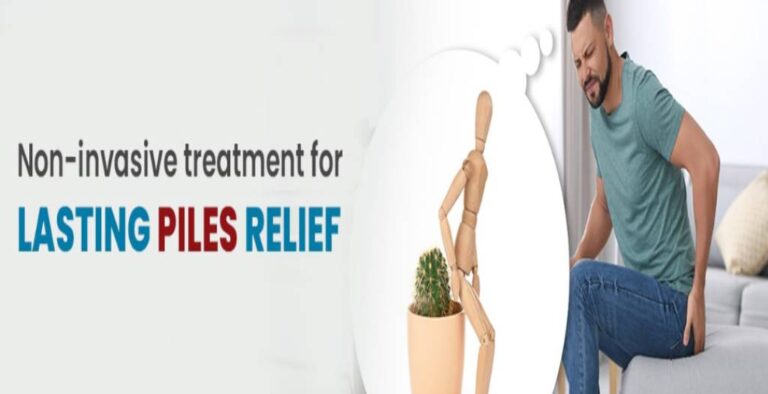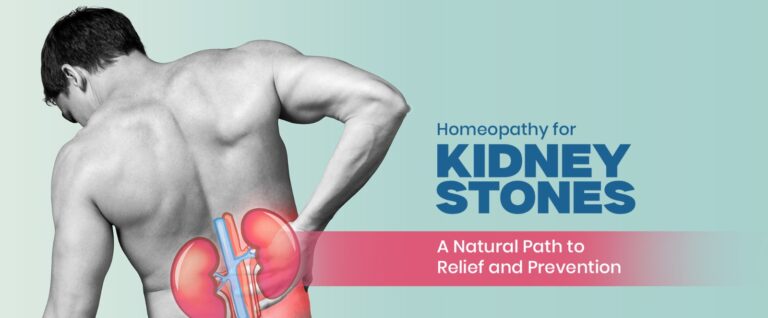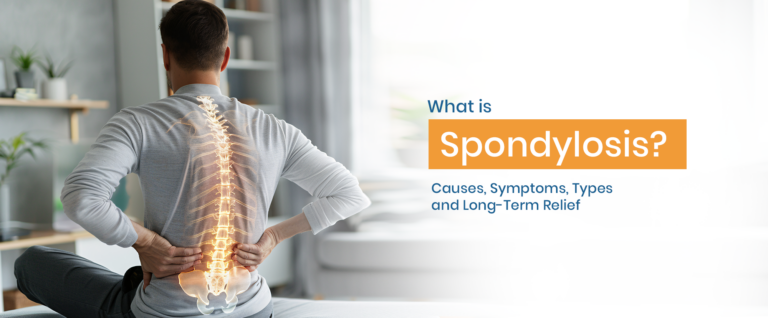Piles are a very common condition, which is otherwise also known as hemorrhoids. Piles (hemorrhoids) are veins found in the lower anus and rectum that become swollen and inflamed. They can also cause inflammation in other tissues. The swollen means may cause itching, pain, and even rectal bleeding. Internal piles are typically located far from the inside of the rectum and are not usually visible.
Internal piles are the most common form of piles. They may be located between two to four centimeters above the anal opening and are. External piles, on the other hand, are situated on the outer edge of the anal region. In this blog, we will be learning more about piles, their symptoms, causes, stages, treatments, complications, and preventive measures. So please keep reading.
Piles meaning:
Piles or hemorrhoids are veins that have enlarged and are formed on the outside or inside of the anus and rectum. While piles don’t cause much problems at the baseline, if these veins swell a lot, then they can cause symptoms such as discomfort or pain. In most cases, piles may get better on their own after a couple of days. However, some patients may require proper treatment.
Piles Prevalence:
A study conducted in 2022 revealed that the prevalence of piles in the general population globally is estimated to be around 4.4%. Another study from 2021 conducted on 403 participants showed that 13.1% of people had hemorrhoids, with prevalence being higher in men when compared to women.
What are the various grades of piles?
Piles or hemorrhoids are classified into four grades. These four grades include the following,
Grade 1 piles: Hemorrhoids in grade 1 are internal types protruding into the anal canal. However, these hemorrhoids do not prolapse out of the anus.
Grade 2 piles: In this grade, the hemorrhoids are internal but protrude or prolapse out of the anus while straining or passing stools. The hemorrhoids, however, go back into the anus without any problem. In this grade, the hemorrhoids are larger when compared to grade 1.
Grade 3 piles: This grade of hemorrhoids is also called as prolapsed hemorrhoids. The hemorrhoids in grade 3 are internal, which prolapse outside the anus. However, in this case, the hemorrhoids do not go back into the anus unless they are pushed in.
Grade 4 piles: The hemorrhoids in grade 4 remain prolapsed outside the anus and do not go back inside even after being pushed. Hemorrhoids in this stage are typically large and remain outside the anal region.
Types of piles:
Piles or hemorrhoids are typically grouped into 4 different types. These 4 types of piles include the following,
Internal piles or internal hemorrhoids
External hemorrhoids or internal piles are veins with swelling that develop deep inside the rectum. These hemorrhoids are not typically visible and are mostly harmless. Internal hemorrhoids do not cause any noticeable symptoms and usually go away on their own. However, in the case of large internal hemorrhoids, individuals may experience symptoms such as,
- A lump near the anus
- Itching
- Burning sensation
- Pain
- Rectal bleeding
- Prolapsed hemorrhoid is where a hemorrhoid protrudes out due to overstraining while passing a stool
External piles or External hemorrhoids
External hemorrhoids usually develop under Present around the anus hemorrhoids are uncomfortable and may cause symptoms such as pain. As these hemorrhoids are found externally, the pain they cause is also severe. In some cases, the symptoms of external hemorrhoids can also interfere with the individual’s everyday activities. The symptoms of external hemorrhoids include pain, itching, swelling, and bleeding.
Prolapsed Hemorrhoids
Prolapsed hemorrhoids are internal hemorrhoids that have been pushed outside or protrude out of the anus. The primary symptom of prolapsed hemorrhoid is a hemorrhoid that is visibly pushing outside the anus. Some other symptoms of prolapsed hemorrhoid also include a burning sensation, pain, and itching.
Thrombosed Haemorrhoids
An internal hemorrhoid or external hemorrhoid having a thrombus or a blood clot formed within it is called a thrombosed hemorrhoid. A thrombosed hemorrhoid is a serious complication that arises when a hemorrhoid is not treated on time. Although a thrombosed hemorrhoid is not fatal, it needs to be attended to medically immediately. Symptoms of thrombosed hemorrhoids are more severe and include chronic pain, burning sensation, severe itching, swelling, redness, and a discolored hard lump near the anus.
Piles Symptoms:
The symptoms of piles may depend on the type of hemorrhoids present.
Symptoms of external hemorrhoids
The various symptoms of external hemorrhoids include the following,
- Constant itching around the anal region
- Swelling around the anus
- Discomfort near the anus
- Pain in the anal area, especially while sitting
Symptoms of Internal hemorrhoids
The various symptoms of internal hemorrhoids include the following,
- Painless bleeding during the time of bowel movements
- A small amount of blood in the tissue or toilet
- Skin sticking out of the anus at the time of bowel movements
In most instances, piles do not cause severe symptoms and resolve on their own without any treatment. However, in general, patients having piles are likely to experience the below-mentioned symptoms,
- Painful lumps around and in the anal area that may contain blood that is coagulated. This hemorrhoid with coagulated blood is also known as a thrombosed external hemorrhoid.
- Constant itching near the anus
- Discomfort around the anus
- Trouble or difficulty in and after passing stools
- Blood in stools
- Red and soreness in the area around the anus
- A feeling of fullness even after passing the stools
- Pain in and around the anal area, especially when sitting
- Rectal bleeding or blood in the stools
In some cases, piles may become severe, and the individual may experience the following symptoms,
- Excessive or severe bleeding from the anus that can even cause anemia
- Strangulated hemorrhoid is where the blood supply to the hemorrhoid is cut short by the muscles in the anus
- Fecal incontinence
- Infection
- Anal fistula
When should I see a piles doctor near me?
You must see your doctor immediately if your piles persist for more than one week or do not improve with home treatments. You also should see your doctor if you have bleeding at the time of bowel movements with piles.
Drexel bleeding also occurred due to other causes. Hence, it is essential to get it checked by a doctor to ensure it is hemorrhoids or not. Seek emergency medical care immediately if you experience dizziness and severe rectal bleeding.
Piles Causes:
Piles occur when the veins present around the anus stretch due to pressure and become bulged. Piles usually develop as a result of increased pressure in the lower rectal region. The increase in pressure in the lower rectal area may occur due to various reasons, such as,
- Constant straining while passing bowels
- Eating a diet low in fibre
- Lifting heavy weights regularly
- Having obesity
- Being pregnant
- Having chronic constipation
- Having chronic diarrhea
- Sitting for prolonged periods
- Having anal sexual intercourse
- Being aged over 50 years
- Sitting for a longer time on a toilet seat
- A family history
Risk factors of piles:
Research has found that there are several factors that may increase an individual’s risk of developing piles. Some of these risk factors of piles include the following,
- Age: Studies have revealed that piles may occur commonly in individuals aged 50 years and above. Around half of the individuals who have piles are found to be aged 50 and above.
- Pregnancy: Studies have shown that about 50% of individuals experience piles or hemorrhoids during pregnancy. Piles during pregnancy may occur as a result of increased pressure in the pelvic region, having higher blood volume, or due to constipation, which is extremely common during pregnancy.
- Weight: Certain studies have revealed that people who are overweight or have obese, are at a greater risk of developing piles or hemorrhoids.
- A Low Fibre Diet: Studies have revealed that individuals with a low or poor-fiber diet are at a higher risk of having hemorrhoids or piles.
Diagnoses of hemorrhoids or piles:
Diagnosis of piles or hemorrhoids may happen during a physical examination. Your doctor will examine your anal area if they suspect piles. In most cases, your doctor will be able to see external piles or hemorrhoids easily.
However, to diagnose internal piles, the following diagnostic procedures will be carried out by your doctor,
A Digital Rectal Exam:
In a digital rectal exam, Your doctor or physician will insert a lubricated glove finger into your rectum, allowing them to check the area for any unusual growths or lumps.
Visual inspection:
Internal piles or hemorrhoids are mostly extremely soft and cannot be felt by the doctor during a visual examination. Hence, to get a better look at the rectal and the colon area, your doctor will conduct a visual inspection. To perform a visual inspection, your doctor will use instruments such as a colonoscope, proctoscope, anoscope, or sigmoidoscope to get a closer view of the hemorrhoids.
How to treat Piles:
Best treatments for Piles:
In many cases, piles or hemorrhoids may resolve independently or can be treated with basic home remedies and lifestyle changes. However, the following treatments may be prescribed by a doctor to treat piles,
Lifestyle Changes
One of the major risk factors for piles is a poor lifestyle, such as no exercise and a diet low in fiber. Hence one of the first treatment approaches used by a doctor to treat piles is lifestyle modifications. To treat your piles or hemorrhoids, your doctor may suggest certain lifestyle changes such as eating a diet high in fiber by including lots of fruits and vegetables in your diet.
Additionally, your doctor may also recommend increasing your water intake, as dehydration can cause constipation, which makes you strain hard for releasing bowels, which in turn leads to piles. To prevent piles and improve them, you may also be advised to exercise regularly.
Medications
To manage piles and their symptoms, your doctor may prescribe medications such as pain relievers, stool softeners or laxatives, and topical creams to relieve itching, swelling, and redness.
Piles Surgery
If you experience severe piles, prolapsed piles, or have chronic symptoms such as heavy rectal bleeding, then your doctor or healthcare provider may advise you to undergo surgery. The various surgical procedures to treat piles may include,
- Hemorrhoid stapling
- Sclerotherapy
- Infrared coagulation
- Banding
- Hemorrhoidectomy
Homeopathy treatment for piles:
Many patients with piles choose homeopathy for treating it these days. There are various reasons behind opting for homeopathy treatment for piles. Homeopathy treatment for hemorrhoids is safe and effective and produces minimal to no side effects. Homeopathy treatment for piles is given after diagnosing the root cause of piles.
At Dr. Care Homeopathy, we aim to provide you with personalized care. Thus, acquiring in-depth knowledge of the health history of patients is a prerequisite and of utmost importance to us. Our expert homeopathic practitioners, with years of experience and expertise, are focused on providing expert consultations, which help them analyze every patient’s medical history, lifestyle, and symptoms being experienced to provide personalized solutions and care.
Our experienced homeopathy experts are in constant contact with our patients to ensure they dig deeper to find the root cause of all their health problems, including piles or hemorrhoids. The personalized strategy made by our homeopathic experts focuses on creating treatments and management plans that help us target specific health factors.
Our homeopathic doctors are trained to find the root causes triggering particular diseases in the patient’s body. Following the diagnosis, our homeopathic doctors provide the best homeopathic remedies that offer holistic healing to our patients. Our doctors also provide management techniques to help the patient safeguard their health in the long run.
The body conditions and imbalances that function as triggers of the particular diseases in the
We provide personalized care along with a detailed analysis to our patients at Dr Care Homeopathy. Our treatment focuses on providing treatments that are gentle, holistic, and efficacious. Our homeo doctors are dedicated to providing the best possible care to its patients with piles to ensure they are free its symptoms. Piles can cause a lot of discomfort. Hence, our doctors provide individualized treatments that not only target the symptoms bu also the root cause of the condition.
Home remedies for piles (hemorrhoids):
Home remedies can help relieve and treat piles at home easily. Home remedies help soothe the pain, redness, and inflammation occurring due to piles. While home remedies may be useful in relieving symptoms of hemorrhoids, it is essential to see a doctor if you experience severe symptoms. Some of the common home remedies for relieving piles and their symptoms include the following,
Applying Cold Compress:
Apply cold compressions such as ice pads to the anal area for about 15 minutes. It can help in relieving swelling and redness. Do not apply cold compression directly on your bare skin. Wrap the ice or ice pack in a cloth or paper towel.
Warm bath along with Epsom Salt:
Warm baths with Epsom salt work as a great remedy for relieving pain and irritation due to piles.
Aloe vera:
Aloe vera gel has been used for decades for treating various skin problems. According to studies, the anti-inflammatory properties of aloe vera can help relieve swelling, pain, redness, burning, and itching associated with piles.
Coconut oil:
The application of coconut oil can help soothe itching and redness in the anal region. It can also help relieve the urge to scratch the skin.
Witch Hazel:
A natural astringent, witch hazel can help prevent infection and reduce itching and pain associated with piles. Witch hazel also works well in reducing swelling.
Piles Complications:
Chances of complications due to piles or hemorrhoids are rare. However, if left untreated for long, piles may give rise to the following complications,
- Anemia: Anemia may occur in individuals with piles as a result of blood loss from hemorrhoids.
- Formation of blood clots: In some cases, blood clots may form in the hemorrhoid. This type of hemorrhoid with blood clots in it is known as a thrombosed hemorrhoid.
- Bleeding: another complication that can occur in patients having piles is bleeding.
- Chances of Infection: Individuals with piles may be at an increased risk of infection as a complication. Infection usually occurs in an external hemorrhoid.
- Strangulated hemorrhoid: A Strangulated hemorrhoid usually occurs when the supply of blood to an internal hemorrhoid is stopped or cut off. Thus, the hemorrhoid is known as strangulated hemorrhoid, and these strangulated hemorrhoids are usually very painful.
- Formation of skin tags: Skin tags occur when there is excessive skin remaining after an external hemorrhoid is gone.
How to Prevent Piles?
One of the best methods to prevent piles is to ensure the stools are soft and easy to pass. To prevent piles and reduce their symptoms and severity, you can follow the below-mentioned preventive measures,
- Eat a fiber-rich diet: One of the major risk factors for piles is a poor fiber diet. Hence, to prevent the occurrence of piles, include foods rich in fiber in your diet, such as vegetables, seeds, fruits, nuts, whole grains, etc. Fibre will help increase the bulk of the stool and soften it, thus making it easy to pass. However, it is important to add fiber gradually into your diet.
- Drink plenty of fluids: Dehydration can cause the stools to harden and lead to constipation, which in turn can give rise to piles. Hence, to prevent piles, it is advised to consume 6-10 glasses of water daily to keep the stools soft and prevent constipation.
- Avoid straining: Excessive straining while holding your breath when passing a bowel movement or trying to pass one can lead to increased pressure in the veins found in the lower rectum. Hence, to prevent piles or hemorrhoids, avoid excessive straining while passing a stool.
- Include exercising: Staying active and performing exercises regularly can help reduce the pressure in your veins. Exercising can also help lower the chances of constipation and lose weight. Thus, preventing piles from forming or worsening.
- Cut down on excessive alcohol and caffeine: Alcohol and caffeine can worsen and cause constipation and piles. Hence, it is advised to avoid them if you have piles.
- Maintain a healthy weight: Having obesity or being overweight is a risk factor for piles. Hence, losing weight or maintaining a healthy weight can help prevent the development of piles.
- Avoid sitting for long: Prolonged sitting, especially on the toilet seat, can worsen piles due to straining. Hence, avoid sitting for longer than usual.
- Do not ignore your urge to pass stool: Ignoring the urge to pass stool and use t
The restroom can make the stools hard and dry, making them tough to pass, thereby leading to piles.
What are the things to avoid with piles?
The below-mentioned don’ts are to be followed if you have piles,
- Avoid wiping your bottom area too hard after passing the bowels
- Do not push and strain too hard if you have piles
- Avoid taking any medications if your piles are bleeding without consulting your doctor
- Don’t spend too long on the toilet seat
- Do not ignore the need to release bowel
Conclusion
Piles, also commonly known as hemorrhoids, is common to occur, especially in people aged above 50. These are swollen veins present in your rectum and lower anus that can cause lumps to form in and around your anus. The size, location, and symptoms of piles may vary from patient to patient. In some cases, the patient may not even realize they have piles. While piles may go away on their own in some cases, some people may require proper medical treatment to treat piles. Risk factors for piles include a poor diet, being overweight, pregnancy, straining during bowel movements, family history, etc.
If you have piles or are experiencing their symptoms, you can get your problem checked by a homeopathic doctor. A homeopathic doctor will examine you thoroughly to diagnose the underlying cause of piles and provide appropriate treatment measures to ensure your condition is well managed with very less side effects.
Piles may be treated with home remedies and non-surgical and surgical treatments. Depending upon your diagnosis, your doctor will recommend the right treatment approach for your piles problem. If you want to treat your piles, you can choose homeopathy treatment. Homeopathy treatment for piles offers treatment without or very less side effects. A homeopathic doctor will examine you thoroughly to diagnose the root cause of your piles and then provide the best-personalized treatment. At DrCare, we have an exceptional team of homeopathic doctors with years of experience in treating piles and various other conditions. To learn more about us and our treatments for piles, please get in touch with us today.



